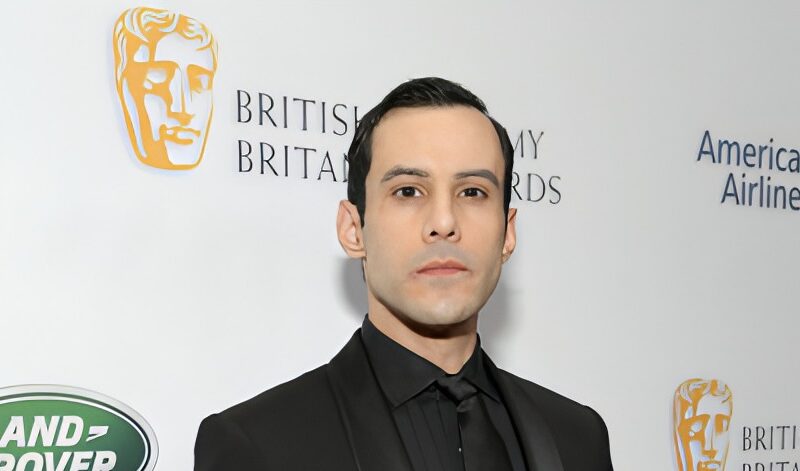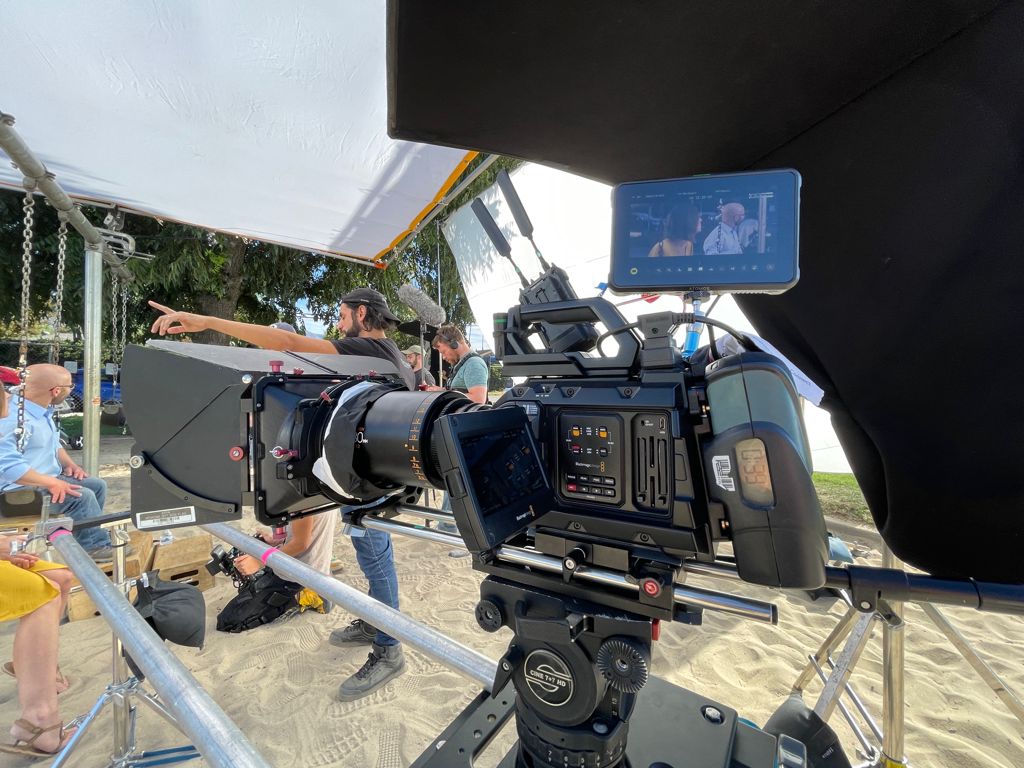Interviewer: Jacques Cameron is a rising actor in Hollywood producing original films for his production company Legacy Artists. In the interview, Cameron discusses his path thus far, from the start of his career to the creation of Legacy Artists and beyond.
Interviewer: Lets start at the beginning. What led you to want to make movies?
Jacques Cameron: Thank you IndieWrap for having me. Its a pleasure to get to interact with you and share something I enjoy with like minded individuals who support the cinematic art form and the theatrical experience. I’m genuinely thankful for the opportunity, its a real treat.
Getting started for me was a blend of one part similar experiences many artists have in the beginning, and another part seeking to forge a personalized version of lasting creative freedom and independence.
There was an allure to cinema for all the right reasons, and when I noticed what movies did for me and thought that I could potentially be in a position to do a small portion of that for other people, that’s what made me feel that making movies was a worthy pursuit.
I have an indescribable urge to move people. That impulse drove me to art and to the movies as a method to convene the world en masse, joined together in one moment, to inform and to entertain.
Interviewer: How did you get started?
Jacques Cameron: I can’t remember the day I made a decision to pursue a life in cinema, but I do remember the initial brainstorm. I distinctly remember making the choice not to tell anyone. I wanted to investigate my own thoughts and understand as much as possible. I think having done that first, now I can do everything with an earnestness and be more effective because I’ve defined what I’m doing and why I’m doing it.
I remember discovering how a majority of people go about it. I remember mentally testing all the critical vulnerabilities in that scheme in my thought process, and I thought I saw too many dice. I tried to tailor an approach to myself rather than fit into one that was already in place, just because it was never a system that was ever built uniquely to fit me.
I saw what I felt a lot of production authorities and studios were looking for, and I wasn’t necessarily cast in that mold so to speak.
I don’t have an MFA. I didn’t go to film school. I didn’t study in a conservatory. I never attended a workshop. I’ve never taken a masterclass. I’ve never auditioned before. I’ve never been in a casting director’s office. I’ve never prepared sides. I’ve never done self tapes. I’ve never camera tested. I’ve never been to a table read. I wasn’t in theater or drama clubs growing up. I’ve never opened a textbook or read a memoir. I’ve never even sought advice.
Those are phenomenal resources if you have them and they’re extremely beneficial tools. I just chose differently.
The closest I came to breaking out in the traditional way was with a small role in an enormous streaming series. It had a fair amount of potential to grow into something more substantial. It ultimately didn’t come together even though I was offered it. I was incredibly excited for its future prospects, but I don’t mourn the loss of it. And looking back, I really think I belong moving in a different direction.
So I don’t have any of the traditional background or formal education. What I do have though may be even better.
I transformed my outlook. I really focused on artists of the distant past. I delineated a difference between creating an artistic work and bringing it to existence, vice a Hollywood career, and I found my way forward from that.
Interviewer: What was the way forward?
Jacques Cameron: I learned from other very prominently established people that most of the work they produce springs from an origin they control. So I made the choice to invest in myself more directly to own and control some of my own destiny.
I established a business entity to develop, package, finance, produce, rights-manage, and distribute projects for myself and to serve as a creative artist loan-out corporation with respect to other studios.
I remember making a decision to take my future into my own hands and figure out how to do it my way and when I had made something, let the results speak for themselves.
I created Legacy Artists and molded that a little bit around what I knew about others who had successfully produced a consistent succession of work for themselves over many years and they did it extremely well. I knew there were very steep challenges inherently, but I thought it was a fit for me. Something about that process felt right to me. Its on another level certainly, but its the same exact process.
Giving myself my own projects and diligently working out all the lessons and practical applications is my education.
Interviewer: How does that compare with the traditional routes that you didn’t take?
Jacques Cameron: Quality doesn’t happen by accident.
There’s stakes. Commitment. Success or failure is in the palm of my hands. It’s entirely up to me. It enables me to feel that much more interconnected with my work and that’s honestly the feeling I want. I want it to feel appended to me in a way as if it is an extension of who I am.
Obviously its a great bar to assail. But it allows me to keep two hands on the steering wheel in a way versus one.
Interviewer: What will you contribute to cinema?
Jacques Cameron: I want to contribute my expression and my voice. I have a visceral understanding of what I want to make, how I want to make it, and why.
I think I’ve developed a very honed signature stylistic form and function cinematically and I’m really eager to share it.
Up until recently I was prepared to talk publicly about it in just the narrowest way possible and I reversed course now so I’d actually like to wait for the right time to discuss that.
In terms of roles as an actor I think I’m trying to avoid a full definition right now. I think I know the definition myself internally, its just that I don’t want to give verbal detail to it, I’d rather create the example on screen and see if it works.
But I also think there’s a genius to stopping short of being unnecessarily definitive.
I think the more room you give an audience to escape into interpretation and implant and infuse their own import and significance into it the more engaged they’ll be, so let them do all of that and take it for a ride. I think that’s one way to make something feel totally boundless and unencumbered by gravity.
I also think I have an adept working knowledge into what each integral piece of the industry needs out of it in addition to what an audience needs out of it. Striking the balance in serving each of those is a talent of its own.
Interviewer: Why Legacy?
Jacques Cameron: I started Legacy several years before the word’s sudden ubiquitous popularity. The way it’s permeated throughout entertainment and the wider culture globally makes me confident I’m onto something. Trusting my instinct is right.
The idea was to create a social wave, an irrefutable wake, something truly alive on its own.
Something that stood the test of time.
That’s what I desire to institutionalize on a brand-level in my work and in myself.
I started Legacy with the idea of making a mark through the cinematic art form. I wanted to do something that left an imprint with all who experienced it. Its a work of fiction only up until the moment you participate in it. From there forward you’ve brought it into your world and its not able to be put back. If you take it with you out of the cineplex, its alive in a way it wasn’t before your showtime.
Interviewer: What is in store for the future?
Jacques Cameron: I have several things I’m working on right now.
I don’t want to say very much about upcoming work other than that there’s a lot in motion. Its going to take a village of visionary talent to execute the extraordinarily unique challenges presented by the premise of this work, and its probably the best I’ve ever devised if I can say that.
They’re my own original expression and not adapted from anything that’s ever taken place in a movie theater and its going to be a monumental objective to strive to achieve but I welcome the striving and I relish the task.
Executing that vision is all that’s left. I’m confident I will.









